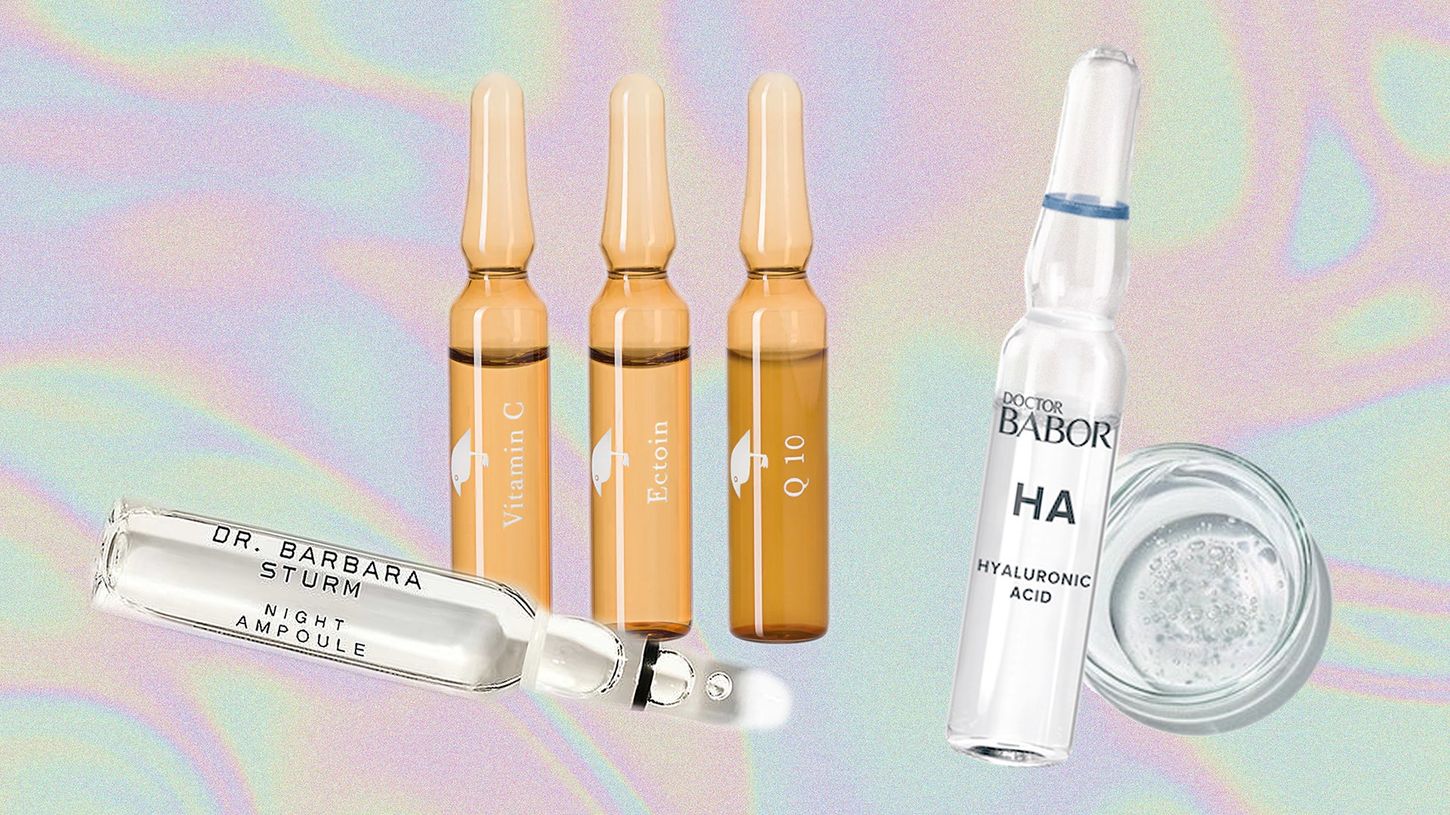
Ampoules are tiny, sealed vials used to contain and preserve a sample, usually a liquid. These small containers are often made of glass or plastic and are used in various fields, including medicine, pharmaceuticals, and cosmetics. Why are ampoules so important? They ensure the sterility and integrity of their contents, protecting them from contamination and degradation. This makes them crucial for storing sensitive substances like vaccines, serums, and essential oils. Ampoules are designed to be opened only once, ensuring that the contents remain pure until use. Their compact size and secure sealing make them a reliable choice for transporting and storing valuable liquids. Whether you're a healthcare professional, a scientist, or someone curious about how medicines are stored, understanding ampoules can be incredibly beneficial.
What is an Ampoule?
An ampoule is a small sealed vial used to contain and preserve a sample, usually a solid or liquid. These tiny containers are often used in the pharmaceutical and chemical industries. Let's dive into some fascinating facts about ampoules.
-
Ampoules are typically made of glass, but plastic versions also exist. Glass is preferred for its impermeability and chemical resistance.
-
The word "ampoule" comes from the Latin word "ampulla," meaning a small bottle or flask.
-
Ampoules are sealed by melting the thin top with an open flame, creating an airtight seal.
-
They are often used to store injectable medications, ensuring sterility and preventing contamination.
-
Ampoules can also contain samples for scientific research, such as blood or other biological fluids.
History of Ampoules
The history of ampoules is rich and dates back to ancient times. Their evolution has been crucial for medical and scientific advancements.
-
Ancient Egyptians used small glass containers similar to ampoules to store perfumes and essential oils.
-
In the 19th century, the modern ampoule was developed to store and transport vaccines and medications safely.
-
The first mass-produced ampoules were created in the early 20th century, revolutionizing the pharmaceutical industry.
-
Ampoules played a significant role during World War II, providing soldiers with sterile medications on the battlefield.
-
Today, ampoules are used worldwide in various industries, from medicine to cosmetics.
Types of Ampoules
There are different types of ampoules designed for specific purposes. Each type has unique features that make it suitable for its intended use.
-
Single-use ampoules are designed to be opened and used once, ensuring the contents remain sterile.
-
Multi-dose ampoules can be resealed after opening, allowing for multiple uses from the same container.
-
Pre-scored ampoules have a small groove around the neck, making them easier to open without tools.
-
Self-breaking ampoules have a built-in mechanism that allows them to be opened with a simple twist.
-
Plastic ampoules are often used for less critical applications where glass is not necessary.
Uses of Ampoules
Ampoules have a wide range of applications across various fields. Their versatility makes them indispensable in many industries.
-
In medicine, ampoules are used to store vaccines, antibiotics, and other injectable drugs.
-
Laboratories use ampoules to store samples for analysis, such as blood, serum, or chemical solutions.
-
Cosmetic companies use ampoules to package single-dose skincare products, ensuring freshness and potency.
-
Ampoules are used in the food industry to store and transport flavorings, colorings, and other additives.
-
They are also used in the fragrance industry to store and preserve essential oils and perfumes.
Advantages of Using Ampoules
Ampoules offer several benefits that make them a preferred choice for storing and transporting sensitive substances.
-
Ampoules provide an airtight seal, preventing contamination and preserving the contents' integrity.
-
They are made of inert materials, ensuring that the contents do not react with the container.
-
Ampoules are tamper-evident, making it easy to detect if they have been opened or altered.
-
They are available in various sizes, allowing for precise dosing and minimal waste.
-
Ampoules are easy to transport and store, thanks to their compact size and durable construction.
How to Open an Ampoule
Opening an ampoule can be tricky if you don't know the proper technique. Here are some tips to help you open an ampoule safely and efficiently.
-
Hold the ampoule upright and tap the top to ensure all liquid is in the bottom part.
-
Use a piece of gauze or tissue to hold the neck of the ampoule, protecting your fingers from sharp edges.
-
Apply gentle pressure to the neck of the ampoule, snapping it away from your body.
-
If the ampoule is pre-scored, it should break cleanly along the groove.
-
Dispose of the broken top safely to avoid injury.
Safety Precautions When Handling Ampoules
Handling ampoules requires care to prevent accidents and ensure the contents remain sterile. Follow these safety tips when working with ampoules.
-
Always wear gloves to protect your hands from sharp edges and potential spills.
-
Use a clean, flat surface to open ampoules, minimizing the risk of contamination.
-
Dispose of broken ampoules in a designated sharps container to prevent injury.
-
If an ampoule contains hazardous materials, handle it in a well-ventilated area or under a fume hood.
-
Follow your organization's protocols for handling and disposing of ampoules to ensure safety.
Innovations in Ampoule Technology
Advancements in technology have led to new and improved ampoule designs. These innovations enhance the functionality and safety of ampoules.
-
Self-breaking ampoules eliminate the need for tools, reducing the risk of injury.
-
Pre-filled ampoules with built-in needles simplify the injection process, making it more convenient for healthcare providers.
-
Smart ampoules with embedded sensors can monitor the contents' temperature and provide real-time data.
-
Eco-friendly ampoules made from biodegradable materials reduce environmental impact.
-
Tamper-proof ampoules with advanced sealing mechanisms ensure the highest level of security for sensitive substances.
Final Thoughts on Ampoules
Ampoules, those tiny sealed vials, pack a punch in the world of medicine and skincare. They keep contents sterile, ensuring the highest quality for treatments and products. Whether you're dealing with vaccines, serums, or essential oils, ampoules offer unmatched protection. Their design prevents contamination, making them a go-to choice for sensitive substances. Plus, they’re easy to use—just snap the top and you're good to go.
In skincare, ampoules deliver concentrated doses of active ingredients, giving your routine a powerful boost. They’re perfect for targeting specific concerns like aging, hydration, or brightening.
So, next time you see an ampoule, remember its role in keeping things pure and effective. From hospitals to home skincare routines, these little vials are more than just containers—they’re guardians of quality.
Was this page helpful?
Our commitment to delivering trustworthy and engaging content is at the heart of what we do. Each fact on our site is contributed by real users like you, bringing a wealth of diverse insights and information. To ensure the highest standards of accuracy and reliability, our dedicated editors meticulously review each submission. This process guarantees that the facts we share are not only fascinating but also credible. Trust in our commitment to quality and authenticity as you explore and learn with us.


